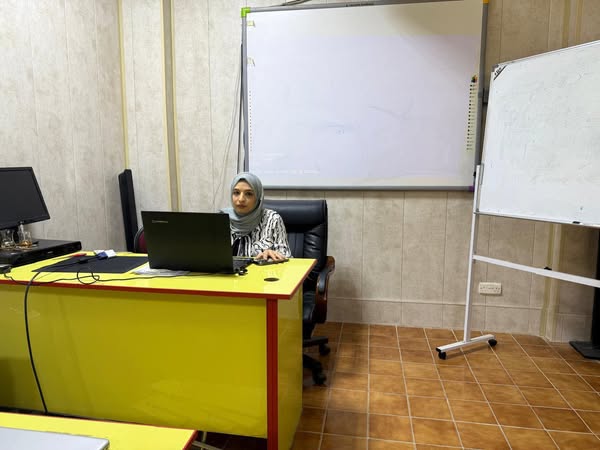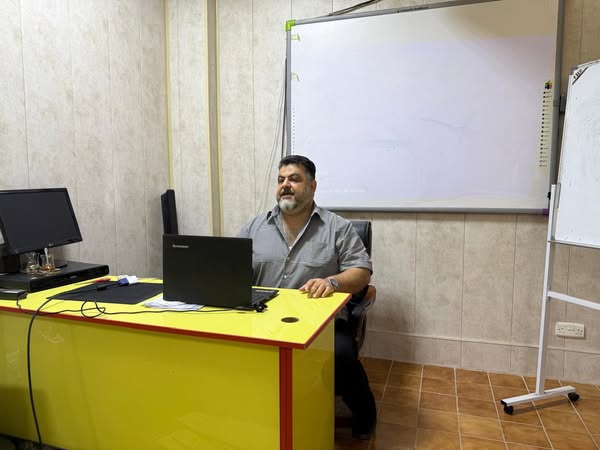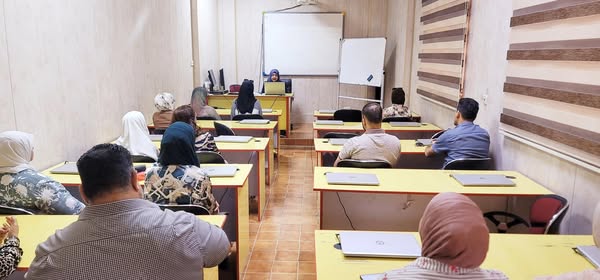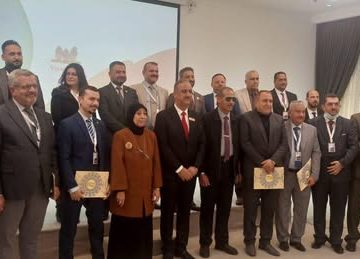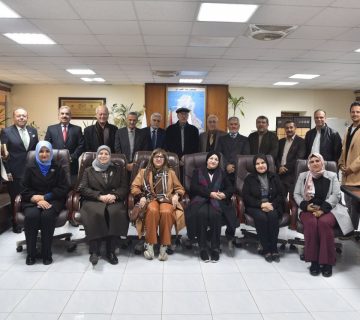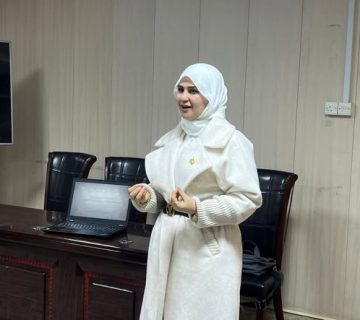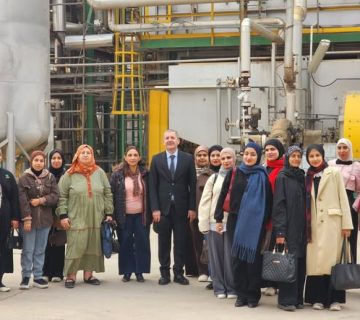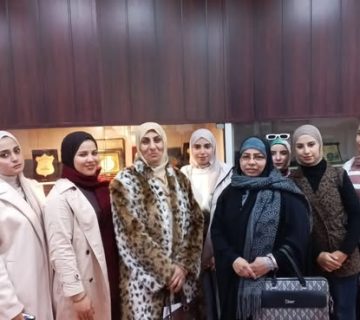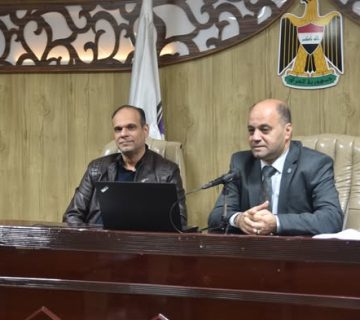Under the patronage of Professor Dr. Sameera Naji Khdim, Dean of the College of Science for Women, the Continuing Education Unit, in collaboration with the Ibn Sina E-Learning Unit and the Information Technology Division, organized a workshop entitled “Artificial Intelligence and Digital Transformation.” The workshop was presented by Dr. Ammar Hussein Jasim, Head of the Ibn Sina E-Learning Unit, Ms. Heba Imad Namik, and Engineer Enas Ahmed Abd from the Information Technology Division. The event was held in Al-Hakim Hall and was attended by several faculty members and staff of the college.
The workshop began with a definition of the term artificial intelligence (AI) as a branch of computer science aimed at creating systems capable of performing tasks that typically require human intelligence, such as speech recognition, learning, and decision-making. It was explained that AI encompasses technologies such as Machine Learning, Neural Networks, and Deep Learning. Subsequently, the concept of digital transformation was clarified as the process of adopting and utilizing digital technologies to improve operations, deliver new products and services, and transform the way organizations conduct their activities. The goal of digital transformation is to enhance efficiency, increase interaction between institutions and their stakeholders, and foster innovation across all areas of work.
The workshop addressed the applications of AI in driving digital transformation, including:
Healthcare: Enhancing disease diagnosis, analyzing medical imaging, and interpreting patient data analytics.
Education: Creating intelligent learning systems that meet students’ needs and improve the learning experience through tools such as interactive courses and digital tutors.
Business and Economy: Optimizing business operations, personalizing marketing campaigns, and developing business models using AI technologies.
Public Sector: Improving the quality of public services.
The workshop also shed light on future expectations for AI and digital transformation, highlighting expert predictions that AI will continue to grow and evolve in the coming years, becoming an integral part of all aspects of daily life. It is anticipated that the future will witness wider applications in fields such as autonomous vehicles, advanced data analytics, and new AI-driven innovations that will make life more efficient and convenient.
